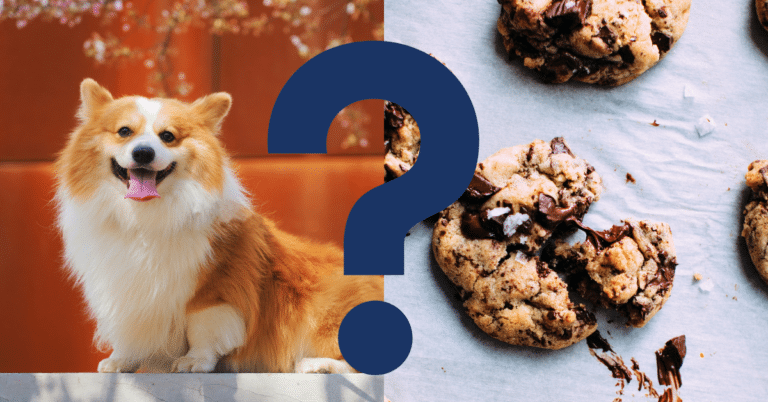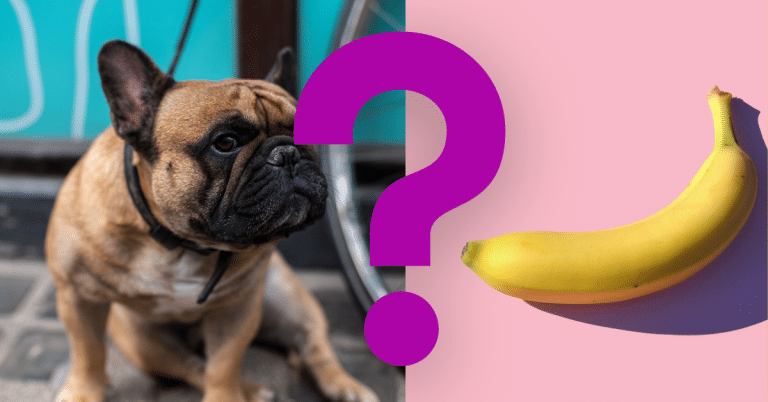Can Dogs Eat Lamb? A Vet’s Opinion

Lamb is the meat of young sheep, usually younger than a year old, and is recognized for its soft texture and mild flavor. But can you feed lamb to your dog?
In moderation, dogs can eat lamb. For dogs, lamb can be an excellent source of protein and other nutrients. It should, however, be thoroughly cooked to get rid of dangerous bacteria and seasoned without using dangerous components, such as onions or garlic. Be on the lookout for possible allergies and digestive sensitivities in some dogs. A veterinarian should always be consulted before adding new items to your dog’s diet.
Benefits of lamb for dogs
When fed as part of a balanced diet, lamb can provide various advantages to dogs:
Rich Protein Source
Lamb is a high-quality protein source for muscle development, repair, and growth.
Essential Nutrients
It is nutrient-dense, containing vitamins B12, zinc, iron, and selenium, promoting healthy metabolism and immunological function.
Amino Acids
It contains essential amino acids that promote healthy skin, coat, and overall cellular function.
Easy To Digest
Lamb is easily digestible, making it ideal for dogs with sensitive stomachs or food allergies.
Energy
The high nutrient content of lamb can provide dogs with long-lasting energy.
Palatability
Many dogs enjoy the taste of lamb, making it an excellent choice for picky eaters.
Despite these advantages, it is critical to feed lamb in moderation and ensure it is adequately cooked and free of dangerous seasonings or chemicals. Always consult a veterinarian before introducing lamb or any new food into your dog’s diet.

How to safely give lamb to dogs
Giving lamb to dogs safely requires careful planning and moderation to maintain their health. To present your canine partner with a safe and delightful lamb treat, follow these guidelines:
Cook Thoroughly
Always thoroughly cook lamb before feeding it to your dog. Raw lamb may contain dangerous bacteria, which can cause food poisoning or other health problems. Avoid flavoring the lamb with onions, garlic, or salt in excess, as these are poisonous to dogs.
Remove Any Bones
Check the lamb for small bones that could pose a choking hazard or create digestive obstructions. To avoid mishaps, stick to boneless cuts.
Moderation Is Key
Lamb should only make up a modest portion of your dog’s diet. Too much lamb can cause gastrointestinal distress and vitamin imbalances. Include lamb as a special treat or mix it with their usual diet.
Allergies And Sensitivities
Introduce lamb gradually into your dog’s diet, especially if they have yet to eat it. Specific proteins, particularly lamb, may cause allergies or sensitivities in some dogs. Examine your dog for harmful effects, such as itching, diarrhea, or vomiting, and stop using it if necessary.
Portion Control
Make adjustments according to your dog’s size, age, and activity level. Larger dogs may be able to eat more lamb than smaller dogs. To establish the proper serving size, see your veterinarian.
Avoid Bones And Fat Trimmings
As previously said, bones can be a choking hazard, and fat trimmings can cause pancreatitis or other gastrointestinal problems. Feed your dog lean chops of lamb.
Observe Your Dog
Keep an eye on your dog when they are eating lamb or any new meal. Consult your veterinarian immediately if you observe discomfort, odd behavior, or unpleasant reactions.
Consider Unique Nutritional Needs
Dogs with certain medical disorders, such as pancreatitis or kidney illness, may require a different diet. Consult your veterinarian before feeding a lamb to a dog with a medical issue.
Balanced Diet
A well-balanced diet should contain different protein sources, carbs, fats, other nutrients, and lamb. Commercially available dog diets are designed to suit your dog’s nutritional requirements.
While lamb can be a nutritious addition to your dog’s diet, it should not be used for their regular dog food. Before making any significant modifications to their food, always prioritize their health and well-being by consulting a veterinarian.
Will lamb make a dog sick?
When prepared and appropriately eaten, lamb can be a healthy and nourishing addition to a dog’s diet, but there is a chance that it could also make a dog sick, especially if improper care is not taken. The following are some possible causes of health problems in dogs from lamb:
Undercooked Or Raw Lamb
Raw or undercooked lamb can expose dogs to dangerous pathogens like Salmonella or E. coli, which can cause food poisoning and digestive distress.
Bones
Lamb bones can splinter or represent a choking risk, which could hurt a dog’s mouth, throat, or digestive system.
Seasonings & Additives
Lamb prepared with salt, garlic, or onions might poison dogs, causing sodium ion toxicity or harm to their red blood cells.
Allergic Reactions
Some dogs may be allergic or sensitive to lamb proteins, which can cause skin problems, itching, rashes, or stomach disorders.
Pancreatitis
Consuming high-fat lamb steaks or fat trimmings can cause dogs to get pancreatitis, a dangerous pancreatic inflammation.
Digestive Upset
Abrupt or excessive lamb introduction to a dog’s diet can upset its stomach, resulting in vomiting, diarrhea, or other digestive disorders.
Food Intolerances
Dogs sensitive to particular foods may not tolerate lamb well, which can cause discomfort and stomach problems.
High Protein
An imbalanced diet with too much lamb may result in kidney strain or other health issues for dogs.
Pre-Existing Medical Ailments
Due to lamb’s high-fat content, dogs with certain medical conditions, such as pancreatitis, kidney illness, or liver problems, may need to avoid eating it.
Bacterial Contamination
Lamb can become infected with dangerous bacteria if not handled, cooked, or kept correctly, which could cause dog diseases.
Always ensure that lamb is fully cooked, clear of bones and unhealthy seasonings, and introduced in moderation to reduce the likelihood of making a dog ill. Before putting lamb in your dog’s diet, speak with a veterinarian if you need clarification on your dog’s tolerance for lamb or if they have any health issues.
Can Dogs Eat Lamb Variations?
Dogs can consume certain types of lamb. However, it depends on how it is made and what additives are used. Following are some typical lamb varieties and suggestions for each:
- Cooked Plain Lamb
Lamb that hasn’t been spiced up or added extra fat or bones can be healthy for dogs to consume. They get critical nutrients and protein from it.
- Dog Food Made With Lamb
Many commercial dog food manufacturers provide formulas made with lamb that are especially created to satisfy a dog’s dietary requirements. These may be a good choice for dogs who react negatively to other protein sources.
- Lamb Snacks
Dogs can enjoy tasty and safe lamb treats thanks to these products’ commercial availability.
- Lamb’s Bones
Dogs shouldn’t be given lamb bones since they can splinter and cause injury to the digestive system. They can also be a choking hazard.
- Lamb Stew Or Dishes
Lamb stew or dishes made for human consumption may include components toxic to dogs, such as onions, garlic, or excessive salt. Dogs shouldn’t be given these dishes.
- Dogs shouldn’t eat lamb dishes with sauces or gravies since these dishes may include toxic elements.
- Raw or undercooked lamb might harm dogs because it may be contaminated with bacteria.
If your dog has any unique dietary needs or medical issues, or if you have any questions about including lamb in their diet, speak with a veterinarian.
Although essential, cooked lamb can be a nutritious addition to a dog’s diet, it should be kept from the dog’s usual food. To protect your dog’s safety and well-being, it is always advisable to visit a veterinarian.

Vet’s Summary
The safety of feeding lamb to dogs is covered in the article, which also identifies any advantages and dangers. It emphasizes that cooked lamb can be a nourishing protein source for dogs without bones or unhealthy flavors. The meat is appropriate for dogs with delicate stomachs since it provides essential nutrients and amino acids and is easily digestible. Lamb should not, however, be served uncooked or undercooked as it may carry dangerous pathogens. Furthermore, some versions should be avoided, such as lamb bones, dishes with sauces and gravies, or those that contain onions and garlic. Before adding lamb to a dog’s diet, the article advises moderation and consulting a vet, especially for canines with allergies or unique dietary requirements.
Given the potential advantages and disadvantages of feeding lamb to dogs, it is advised that owners always include probiotics in their pet’s diet. Probiotics can aid in preserving a balanced population of good gut bacteria, improving digestion and nutritional absorption. Probiotics can help to lessen potential digestive issues because lamb, like any new diet, may cause gastrointestinal intolerance in particular dogs. Probiotics can also lessen the dangers of bacterial infection, which is helpful if a dog has eaten lamb that was either raw or undercooked. Always consult a veterinarian before introducing a new supplement or making dietary changes to be sure the particular probiotic supplement is suitable for the dog’s health requirements.
Videos to watch
If you are wondering what related foods are good to give your dog, watch this:
And if you want to know what a dog can NOT eat, watch this:






